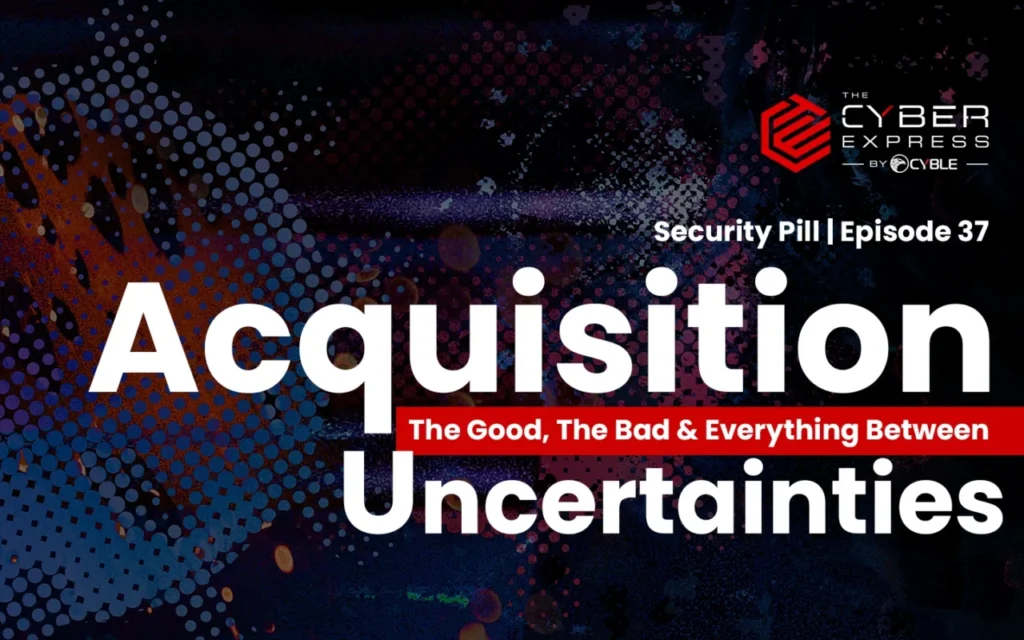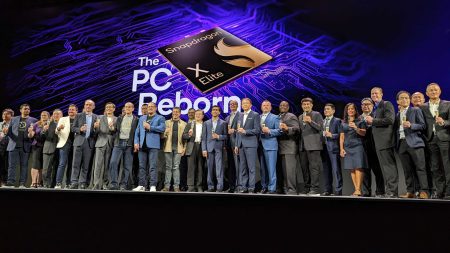In the latest episode of Security Pill, The Cyber Express explored a significant shakeup in the cybersecurity industry sparked by Mastercard’s acquisition of Recorded Future, one of the pioneers in threat intelligence.
The discussion, featuring Beenu Arora, CEO and Co-Founder of Cyble, examined the potential impact of this acquisition on businesses and industries across various sectors.
As cybersecurity became more integrated with business strategies, Arora highlighted the importance of threat intelligence and how these changes may affect security priorities. He also discussed the broader implications of acquisitions like this, offering insights into navigating the evolving cybersecurity landscape.
Watch the Video Here:
Mastercard’s Acquisition
Mastercard’s acquisition of Recorded Future stands out as a landmark deal in the cybersecurity industry, with many experts, including Arora, labeling it as historic. “This is one of the largest cybersecurity deals we have seen recently,” said Arora. Recorded Future, known for providing real-time threat intelligence, analytics, and insights on cyber threats, has been a leader in its field for over 15 years.
Arora elaborated on the implications of this acquisition, stating, “I can only imagine the possibilities, ranging from real-time threat detection for Mastercard’s ecosystem of merchants and partners to potentially improving fraud detection capabilities.” He highlighted that the deal strengthens Mastercard’s position in the cybersecurity space while expanding its reach beyond payment processing.
The Role of Threat Intelligence
Traditionally, threat intelligence has been viewed as a highly technical component of cybersecurity operations. However, with Mastercard’s acquisition of Recorded Future, threat intelligence is moving from a niche technology to a central part of a company’s security and business strategy. Arora emphasized that threat intelligence should no longer be considered a “siloed technical capability” but a crucial element of broader business strategy.
“Threat intelligence sits at the heart of designing business strategies,” said Arora, pointing out that the acquisition reinforces the notion that threat intelligence can be a powerful tool for businesses looking to grow securely. This shift in perspective, from viewing threat intelligence as a purely technical function to integrating it into strategic decision-making, is a trend that many businesses are beginning to recognize.
Paul, a co-host of the Security Pill podcast, noted that threat intelligence has become “a central component of a security plan,” marking a significant shift in how businesses approach cybersecurity. He suggested that Mastercard’s acquisition of Recorded Future would serve to drive this point home, further embedding threat intelligence into day-to-day operations.
Navigating the Cybersecurity World
As organizations increasingly prioritize cybersecurity in their business strategies, the question arises: Will acquisitions like Mastercard’s shift focus away from industries outside of its core business? Paul raised this concern during the discussion, asking whether industries such as healthcare and energy should worry about losing attention from Recorded Future, now that it is part of Mastercard’s ecosystem.
Arora acknowledged that such concerns are valid but suggested that they are typical of any acquisition. “With any acquisition, the acquirer generally has their own DNA and focus,” he said, explaining that Mastercard’s focus on the banking and payments sector may influence how Recorded Future operates. However, Arora pointed out that this also offers Recorded Future significant leverage by gaining access to Mastercard’s extensive network of merchants and partners.
While there is potential for some industries to feel neglected, Arora believes that the cybersecurity ecosystem is robust enough to fill any gaps. “If in case some vacuum gets created, there are other players who would step up to fill that vacuum,” he said, mentioning Cyble’s role as one of the largest competitors to Recorded Future in mature markets. Cyble works with over 500 organizations globally, spanning both private and government sectors, positioning itself as a key player in the threat intelligence market.
The Future of Threat Intelligence
Looking ahead, Arora is optimistic about the growth and evolution of threat intelligence as an industry. “There’s no doubt that this industry is going to expand further,” he said, noting that threat intelligence is becoming increasingly important in business strategy discussions. He emphasized that threat intelligence is now a key factor in safeguarding intellectual property, preventing cyberattacks, and mitigating risks.
Moreover, as cyberattacks grow more sophisticated, threat intelligence plays a critical role in protecting businesses from both external and internal threats. State-sponsored actors, organized criminals, and financially motivated attackers are constantly seeking sensitive information, making threat intelligence indispensable for businesses looking to defend against such threats.
Arora concluded by reinforcing his belief in the power of threat intelligence to drive business growth while maintaining security. “Threat Intel can be a really powerful aspect when you are intending to grow your business securely,” he said, aligning with Cyble’s mission of “creating a better world for everyone.”
Conclusion
The acquisition of Recorded Future by Mastercard marks a pivotal moment in the cybersecurity industry, further cementing the role of threat intelligence in business strategies. While there are concerns about how this acquisition may affect industries outside of Mastercard’s core focus, Beenu Arora remains confident that the cybersecurity ecosystem is resilient enough to adapt. As businesses continue to prioritize cybersecurity, the integration of threat intelligence into strategic decision-making will only become more critical in safeguarding against evolving threats.
This episode of Security Pill highlights the importance of staying informed about industry trends and exploring potential alternatives to ensure that organizations across all sectors can navigate the changing cybersecurity landscape.
Source: Read More

